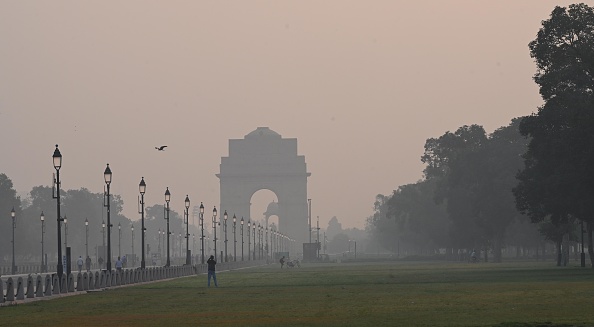On Sunday, a thin layer of smog covered parts of the national capital, with the Air Quality Index (AQI) remaining in the ‘very poor’ category. At 7 AM, the AQI was recorded at 364, according to the Central Pollution Control Board (CPCB). Many areas reported AQI levels exceeding 350, raising significant health concerns for residents.
New Moti Bagh registered an AQI of 352, RK Puram at 380, Vivek Vihar at 388, Dwarka Sector 8 at 385, and Lodhi Road at 330—all classified as ‘very poor.’ In contrast, Nehru Nagar and Anand Vihar recorded ‘severe’ air quality, with AQI levels of 431 and 427, respectively. Burari’s AQI stood at 385, also in the ‘very poor’ range.
The AQI classifications are as follows: ‘poor’ (200-300), ‘very poor’ (301-400), ‘severe’ (401-450), and ‘severe plus’ (450 and above). Resident Aditya expressed concerns, saying, “It is very difficult to breathe. This is not a time we can go out and do exercise; pollution is affecting our eyes.”
In response to the rising pollution levels, Delhi Environment Minister Gopal Rai announced plans to deploy 200 mobile anti-smog guns across the capital. These guns will operate in three shifts, spraying water in all assembly constituencies to help control dust pollution.
Rai emphasized that the Delhi government is actively addressing pollution from dust, vehicles, and biomass burning. “Our teams are continuously working on targeting these three issues on the ground,” he stated.
On Saturday, the AQI in Delhi was reported at 296, with specific areas showing high levels of pollution: Anand Vihar at 380, ITO at 253 (poor), RK Puram at 346 (very poor), IGI Airport T3 at 342 (very poor), and Dwarka Sector 8 at 308 (very poor).
In Mumbai, a thick layer of smog was observed near Marine Drive, with the AQI standing at 208, categorized as ‘poor.’
(Inputs from ANI)




















